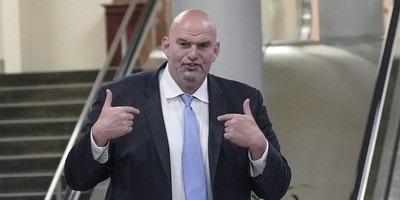Richard Nixon declared War on Cancer in his 1971 State of the Union. Barack Obama devoted one sentence to our investment in promising innovative research in cancer. He mentioned the potential solar treatment that can kill cancer cells while leaving healthy cells untouched. Nixon may have employed a metaphor of "overkill" in fighting a terrible disease, but Obama slighted the subject, despite earlier statements about wanting "a cure for cancer in our time."
Fortunately, the rates of new diagnoses and rates of death from all cancers combined have declined significantly in the past decade for men and women and for racial and ethnic populations in the United States, according to the National Cancer Institute. No small thing. But if you document the emotional fears over cancer articulated in personal experiences that scientists call "anecdotal evidence," the incidence of cancer seems incredibly high.

I personally know five people who in the last year (starting at the age of 40) have been diagnosed with different kinds of cancer, including breast, pancreatic, lymphoma and prostate, all of whom are getting treatment that offers hope that they will live long lives in spite of the cancer. But anxiety reigns over their lives and confusion plagues the rest of us who try to separate scientific evidence from popular suggestions.
The media don't always help. The November guidelines for mammograms as a preventive detection for breast cancer got embroiled in the confusion and economics of the health care debate and still requires some light. When the U.S. Preventive Services Task Force (USPSTF) advised that women over 50 should get a mammogram every two years instead of annually as had been previously prescribed, a hue and cry went up blaming "bureaucrats" for cutting costs at the price of harming women.
Recommended
That's too bad because the advice was not issued by experts who personally or collectively had a vested economic interest in their advice, and the suggestions had nothing to do with Congress or the Obamacare legislative debate. The task force, appointed by the government to make interpretations and recommendations, is without policymaking abilities (although some insurance companies base their policy on the interpretations).
The USPSTF report should instead provoke informed discussion over facts, trade-offs and the impact of having annual mammograms along with a consideration for the increased numbers of false positives that often lead to further imaging tests and pointless exposure to additional radiation.
"Our entire breast oncology group got together and decided that the findings of the task force should serve as a starting point for a debate about the limitations of screening, but definitely not as a justification for women to delay or forgo their mammography," says Dr. Lisa Jacobs, assistant professor of surgery at Johns Hopkins, in their Hospital Medical Letter. Of course, we would all like perfect determinations for diagnostic and preventive tests, but with a disease such as breast cancer, that still isn't possible.
"Scientists are on the verge of finding biomarkers and genetic determinants of risk that will help us create individual risk profiles," says Jacobs. "Maybe then we can say for sure that some women do not need to be screened -- but we are about 10 years away from that happening."
Like any disease, money in the pocketbook, literally, affects treatment, prevention and exploitation. Women, perhaps more than men, become prey for expensive gimmicks playing as they do into the vanity issue. Expensive spas that offer pampering along with "alternative" treatments may make some women feel better by simply giving them the illusion of treatment, but do nothing to reduce the spread of cancer.
Celebrity cancer patients have heightened our awareness about different kinds of approaches to cancer, but they also heighten the emotions and distort unscientific results. Suzanne Somers, for example, who writes with advice for others based on her personal experiences with breast cancer in rejecting chemotherapy, avoids the complexities facing women at different stages and with different kinds of aggressive tumors. As an expert, she's merely an actress writing best-sellers while trying to overcompensate for the ditsy character that made her famous on the 1970 sitcom "Three's Company."
Despite best-selling hokum, the public does seem more discriminating and less gullible than those who followed actor Steve McQueen to Mexico in 1980 seeking apricot pits that were then touted as the magical cancer cure. Television will break new ground in the fall with a fictional series on Showtime called "The Big C" that stars Laura Linney, a supple and nuanced actress, who plays a suburban wife and mother diagnosed with cancer.
Let's hope she brings subtlety rather than sensationalism to this sensitive subject. We could use some emotional truth along with good science and sustained economic support for cancer research.

























Join the conversation as a VIP Member